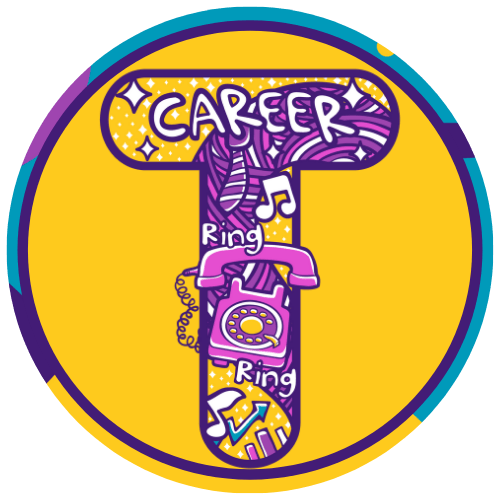RUN!!! 10 Red Flags To Look For In An Interview
RUN!!! 10 Red Flags To Look For In An Interview

Navigating the interview process can feel like walking through a maze, right? You’re on a mission to find that perfect job, but it's not just about impressing potential employers. It's equally important to keep your eyes peeled for those subtle (and sometimes not-so-subtle) warning signs that might indicate a workplace isn't the right fit for you. Here are 10 red flags that deserve your attention during an interview!
The Job Description Is Vague
It's natural for job descriptions to evolve and change as the hiring process progresses, but be wary of vague job postings. If the company isn't clear on what they're looking for in a candidate, it could be a sign of disorganization or a lack of direction within the company. This could also indicate that the job responsibilities are not well-defined, putting you at risk of taking on tasks outside of your comfort zone or skillset.
The Hiring Process Is A Mess
If the hiring process starts off rocky , that could be a red flag. Whether it's lack of communication or disorganization on their end, pay attention to how smoothly things are running or if it feels like a struggle just to schedule an interview. This could be an indication of how things are run within the company and can be a major source of frustration down the line if you do get hired.
Vague Answers to Your Questions
You know those moments when you ask a straightforward question and get anything but a straightforward answer? If they're dodging questions about growth opportunities, company culture, or specific job responsibilities, it's a heads-up they might not have clear answers. This could mean they're hiding something or that the company lacks transparency, which can lead to confusion and disappointment once you start working there.
High Turnover Rate
Did they mention they're always on the lookout for new talent? While it might seem flattering at first, constant hiring could indicate people are rushing for the exits. Ask yourself why. This could be a sign of poor management, a toxic work environment, or lack of advancement opportunities. It's worth digging deeper and asking specific questions about the company's turnover rate. After all, you want to invest your time and energy into a company that values their employees.
Poor Glassdoor Reviews and Overall Bad Reputation
In today's age of technology and social media, it's easy to do some quick research on a company before applying. Take the time to read reviews from current or past employees. If there are consistent negative patterns or complaints about the company culture, management, or work-life balance, it's worth taking note. A company with a bad reputation is not one you want to dedicate your time and effort to. Do your research and check out the company's reviews on Glassdoor. While it's important to take individual reviews with a grain of salt, repeated complaints or patterns in reviews can be a red flag.
No Clear Path for Advancement
It's important to have an idea of where this job could take you in the future. If there seems to be no room for growth or promotions within the company, it might not be the best long-term fit for you. If there's no clear answer on how you can progress within the company, you might find yourself stuck in a dead-end position. Ask about advancement opportunities and the career paths of current employees to get a better understanding of how this company values growth and development.
Unrealistic Expectations
During an interview, it's important to discuss salary and expectations surrounding the role. Be wary if the job expectations seem unrealistic or if they mention long hours and tight deadlines without any flexibility. Also, be sure to inquire about the responsibilities that would be assigned to the role. Does it sound like the role would require the commitment of two or three people to complete? This could indicate a toxic work culture that would lead to burnout. Make sure the expectations are realistic and align with your personal values and career goals.
No Work-Life Balance
Work-life balance is crucial for maintaining a healthy lifestyle and avoiding burnout. Are they willing to honor the pre-planned vacation you've had on your calendar for months? If the interviewer seems uninterested in discussing work-life balance or brushes off questions about it, this could be a sign that the company doesn't prioritize their employees' well-being. It's important to have boundaries between work and personal life, so make sure you ask about the company's expectations for work-life balance.
The "Perks" Are All Fluff
A foosball table and free soda are nice, but do they offer health insurance or retirement plans? I don't care about the free food and the annual Christmas parties if I can't make an appointment to get my annual physical. Make sure their perks aren't just distractions from a lack of substantial benefits. These might seem like small details, but they can make a huge difference in your overall job satisfaction and well-being.
Badmouthing The Company, Competitors, or Former Employees
Spilling the tea on others? Juicy gossip can be fun, but in a professional setting, it's a huge no-no. It shows a lack of professionalism and respect. If they're willing to badmouth others in an interview, it begs the question of how they talk about their own employees or clients behind closed doors. This could also indicate a toxic work environment and lack of support within the company. It's important to work for a company that values respect and professionalism in all aspects.
At the end of the day, trust your gut. If something doesn't feel right during the interview process, it's important to listen to that feeling. Maybe the interviewer gave off a bad vibe or the office environment seemed chaotic and unorganized. Don't ignore these red flags, as they could indicate larger issues within the company. Keep your eyes open, and make sure to ask questions that are important to you during the interview process. You deserve to work for a company that values and supports its employees.
Remember, an interview is a two-way street. It's as much about you finding the right fit as it is about impressing them. Keep these red flags in mind, and you'll be better equipped to spot a less-than-ideal workplace before you commit to a toxic work environment. So don't settle for less than what you deserve in your next job opportunity!
Are you a Shaker, Mover, or Doer,
Join our network!
Need assistance preparing for your upcoming interview? We can help... Grab our Power Hour Session to get a customized approach to meet your interview needs.
Sound Off 📢 What are some red flags you've come across in the interview process?
Be Kind & Share! 💌
About the author
Bridget Baggett is a Career Strategist and a Diversity Consultant that assist professionals with their career journey. She helps career-oriented professionals navigate the competitive workforce by setting attainable career goals that lead to gainful employment, promotions, salary increases, and meaningful career changes. She is the founder of the Twisted Career Society, a network of professionals that inspires, educates, and innovates the global workforce








